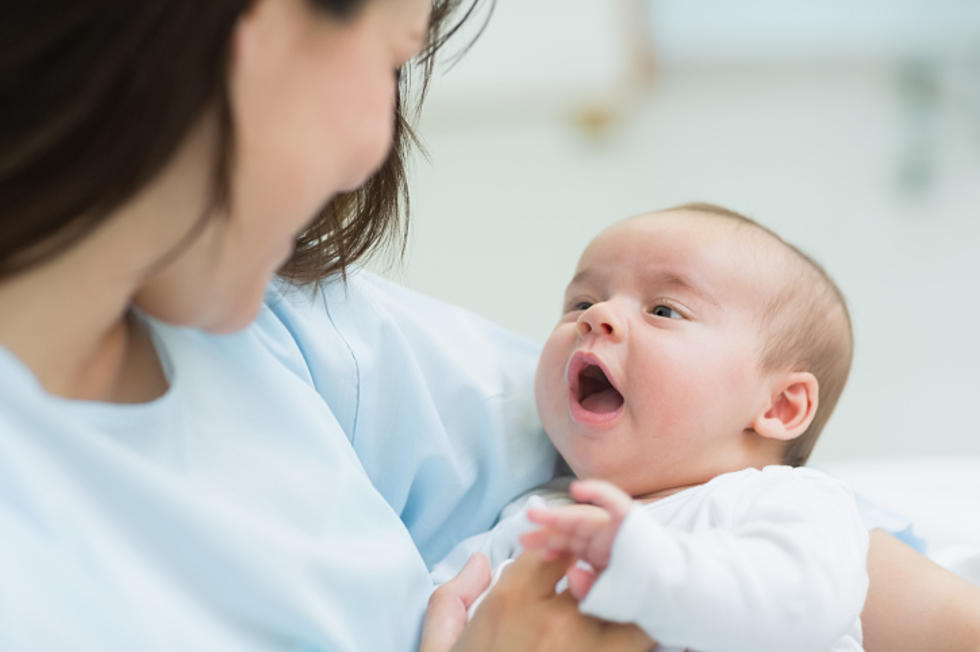
Why birth centers are gaining popularity in NJ
Birth centers are on the rise nationwide for women with low-risk pregnancies seeking natural delivery, and two are slated to open in New Jersey next year in Ocean and Morris Counties, according to officials with the American Association of Birth Centers.
Kate Bauer, AABC executive director, said there are currently 313 birth centers in the United States.
"We've seen growth of over 40 percent in the last three to five years," Bauer said.
She said two groups are planning centers in the Garden State in Morristown and Lakewood, the state's first in a decade.
Mothers-to-be are educated physically, emotionally and socially about what to expect during and after pregnancy.
"A birth center is not only a facility, it's a program of care. So it begins with your first prenatal visit and goes through to your six-week postpartum visit," Bauer said. "It is based on the midwifery model of care, although that can also include other providers such as obstetricians and family physicians."
Birth centers offer a holistic approach and are not for women with complicated pregnancies, according to Bauer.
"In a birth center you will not find epidurals or C-section capability," Bauer said.
She explained there are alternative methods for pain relief, such as movement, nitrous oxide or laughing gas and hydrotherapy, or the use of water.
A typical family stay in a birth center is four to five hours after birth, according to Bauer.
"It's not because the birth centers say you have to go home now, it's because they're ready to go home," she said. There is still close follow up even though the stay is shorter than a hospital, Bauer added. "They have follow up visits with the birth center staff, many times there is a home visit and phone calls."
The rise in popularity of birth centers isn't a surprise to Dr. Clara Surowitz, MD, co-owner of the planned facility in Lakewood.
"It's something that's really up and coming now because all the statistics are showing that birth centers are really very safe, and the more people are delivering in hospitals, the more the interventions go up, and that's when you start seeing elevated C-section rates and other complications and things," said Dr. Surowitz.
She added there's no reason for a healthy woman carrying a healthy baby to go to a hospital.
Free-standing birth centers are usually independent practices, according to Bauer, and are owned many times by the providers or they are community non-profit centers. Birth centers also can be owned by hospitals, and all of them do have a hospital affiliate with transfer agreements in the event complications arise, such as an expectant mother needs to have her labor stimulated or needs a higher level of pain management.
"Real dire emergencies only happen about less than half of 1 percent of the time, which is really very low, because when you take out all of those high-risk people or even people with some risk, then you're left with a group of people that would have a very low risk of anything happening," Surowitz said.
She said most of the hospital transfers are for people who don't progress or need Pitocin to augment their labor or those who want an epidural for the pain.
"Those are the vast majority of transfers, and then you have that very tiny percentage that are actually big emergencies," she said.
Many insurances will cover birth center deliveries, and Surowitz said it's a big part of Obamacare.
"There's two parts for getting paid for a birth: there's a facility fee and there's the provider fee. So, for a physician-owned birth center like mine, then the insurance will cover it, and it is mandated by Obamacare that the insurance companies cover birth center births," she said.
Many birth Centers give free no-obligation orientations and Bauer said it's a great way to learn about the programs and services offered.
More From 92.7 WOBM










